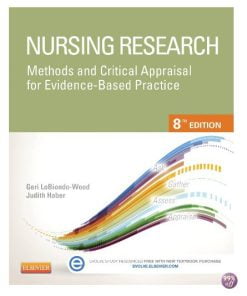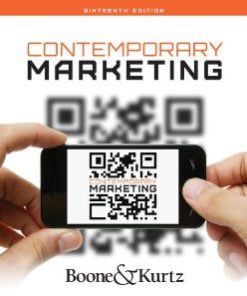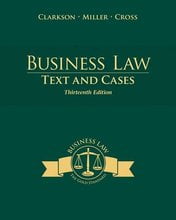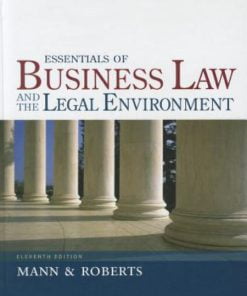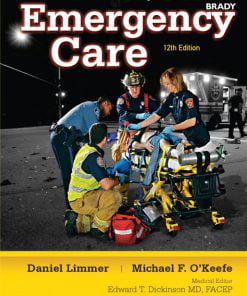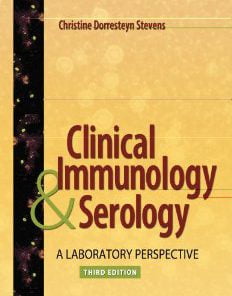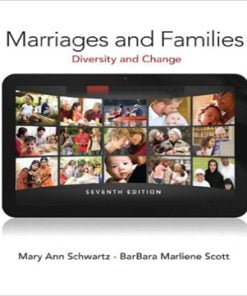Test Bank For International Politics on the World Stage, Brief 8th Edition 8th Edition
$35.00 Original price was: $35.00.$26.50Current price is: $26.50.
Test Bank For International Politics on the World Stage, Brief 8th Edition 8th Edition
Instant download Test Bank For International Politics on the World Stage, Brief 8th Edition 8th Edition pdf docx epub after payment.
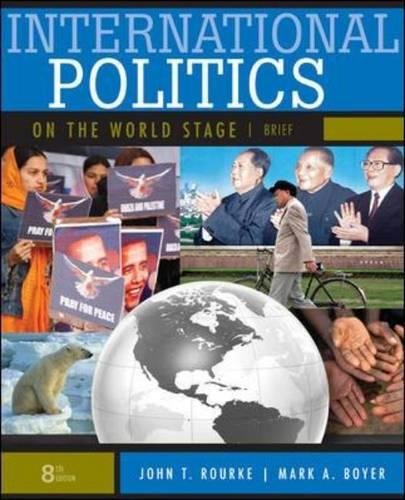
Product details:
- ISBN-10 : 0073378992
- ISBN-13 : 978-0073378992
- Author: John T. Rourke; Mark A. Boyer
This concise text provides students and instructors with a comprehensive overview of world politics, inviting them in a straightforward and accessible way to explore international relations and its new challenges. A hallmark of the text is the authors’ position that politics affect the lives of all of us, and that the individual can have an impact, whether small or large, by being politically aware and by taking action. The eighth edition includes an enhanced art program with 7 more charts and analyses and updates of currents including economic trends, possibilities of a new direction in U.S. foreign policy under the Obama administration, global environment issues and much more.
Table of contents:
Thinking and Caring about World Politics
1(30)
Previewing the Global Drama
1(3)
Global Actors: Meet the Cast
1(2)
Alternative Approaches to World Politics
3(1)
The Importance of World Politics to Each of Us
4(10)
World Politics and Your Finances
5(1)
International Trade and Your Finances
6(1)
The Flow of International Capital and Your Finances
7(1)
Defense Spending and Your Finances
7(1)
World Politics and Your Living Space
8(2)
World Politics and Your Life
10(1)
Transnational Diseases
10(1)
Transnational Political Violence
11(1)
You Can Make a Difference
12(1)
Taking Direct Action
12(1)
Voting
12(1)
Becoming a Policy Maker
13(1)
Thinking Theoretically: Putting Events in Context
14(15)
Realist Theory
16(1)
Classic Realism and Neorealism
16(1)
Realism An Emphasis on Power
17(1)
Realism and the Competitive Future
18(1)
Liberal Theory
19(1)
Classic Liberalism and Neoliberalism
20(1)
Liberalism An Emphasis on Cooperation
20(1)
Liberalism and the Cooperative Future
21(1)
Postmodernist, Feminist, and Economic Theories
22(1)
Postmodernist Theory
22(2)
Feminist Theory
24(1)
Economic Theories
25(1)
Constructive Theory
25(1)
Constructivism and the Nature of Politics
26(1)
Constructivism and the Course of World Politics
27(1)
Assessing Theories
28(1)
Chapter Summary
29(2)
The Evolution of World Politics
31(24)
The Evolving World System: Early Development
31(6)
Ancient Greece and Rome
31(2)
After the Fall of Rome, A.D. 476 to 1700
33(1)
Universal Authority in the Middle Ages
33(1)
Local Authority in the Middle Ages
34(1)
The Decline of the Feudal System
34(1)
The Decline of Universalistic Authority
35(1)
The Emergence of the Sovereign State
36(1)
The Eighteenth and Nineteenth Centuries
36(1)
The Evolving World System: The Twentieth Century
37(3)
The Rise and Decline of the Bipolar System
37(2)
The End of the Bipolar System
39(1)
The Twenty-First Century: The Genesis of a New System
40(13)
The Polar Power Structure in the Twenty-First Century
40(1)
A Unipolar Moment
40(1)
The Multipolar Urge
41(1)
Limited Unipolarity
42(1)
Future Polarity
43(1)
Other Power Changes in the Twenty-First Century
43(1)
The Weakening Western Orientation of the International System
43(1)
Challenges to the Authority of the State
44(2)
Security in the Twenty-First Century
46(1)
Global Economics in the Twenty-First Century
47(1)
Economic Interdependence
47(1)
Economic Disparity between North and South
48(3)
Quality of Life in the Twenty-First Century
51(1)
Human Rights
51(1)
The Environment
52(1)
Chapter Summary
53(2)
Levels of Analysis and Foreign Policy
55(25)
Individual-Level Analysis
55(10)
Humans as a Species
56(1)
Cognitive Factors
56(2)
Emotional Factors
58(1)
Biological Factors
59(1)
Gender
59(1)
Organizational Behavior
60(1)
Role Behavior
61(1)
Decision-Making Behavior within Organizations
61(1)
Leaders and Their Individual Traits
62(1)
Personality
62(1)
Physical and Mental Health
63(1)
Ego and Ambition
64(1)
Political History and Personal Experiences
64(1)
Policy as a Mix of Rational and Irrational Factors
64(1)
State-Level Analysis
65(4)
Making Foreign Policy: Type of Government, Situation, and Policy
65(1)
Type of Government and the Foreign Policy Process
65(1)
Type of Situation and the Foreign Policy Process
66(1)
Type of Policy and the Foreign Policy Process
66(1)
Making Foreign Policy: Political Culture
67(1)
Foreign Policy-Making Actors
68(1)
System-Level Analysis
69(9)
Structural Characteristics
69(1)
The Organization of Authority
69(2)
Scope, Level, and Intensity of Interactions
71(1)
Power Relationships
71(1)
The Number of Powerful Actors
72(2)
The Context of Power
74(1)
Economic Realities
75(1)
Norms
76(2)
Chapter Summary
78(2)
Nationalism: The Traditional Orientation
80(22)
Understanding Nations, Nationalism, and Nation-States
81(5)
Nations, Nationalism, and Nation-States Defined
81(1)
Nations
81(1)
Nationalism
82(1)
Nation-States
83(1)
The Rise and Ascendancy of Nationalism
83(1)
Early Nationalism
83(1)
Ascendant Modern Nationalism
84(1)
Patterns of Nation-State Formation
85(1)
Nationalism in Practice: Issues and Evaluation
86(12)
Nation-States: More Myth than Reality
86(1)
One Nation, One State
86(1)
One State, Multiple Nations
87(1)
One Nation, Multiple States
87(2)
One Nation, No State
89(1)
Multiple Nations, Multiple States
89(1)
Positive and Negative Aspects of Nationalism
90(1)
Positive Nationalism
90(1)
Negative Nationalism
91(4)
Self-Determination as a Goal
95(1)
Positive Aspects of Self-Determination
95(1)
Concerns about Self-Determination
96(2)
Nationalism and the Future
98(3)
The Recent Past and Present Status of Nationalism
98(1)
The Predicted Demise of Nationalism
99(1)
Persistent Nationalism
99(1)
The Future of Nationalism
100(1)
Chapter Summary
101(1)
Globalism: The Alternative Orientation
102(29)
Globalism
103(2)
Globalization
105(10)
Factors Accelerating Globalization
105(2)
Globalization of Transportation and Communications
107(1)
Global Transportation
107(1)
Global Communications
108(1)
Economic Globalization
109(1)
Cultural Globalization
110(1)
Language
111(1)
Consumer Products
111(1)
Evaluating Globalization
112(1)
Arguments for Economic Globalization
112(1)
Concerns about Economic Globalization
113(1)
Concerns about Cultural Globalization
113(2)
Transnationalism
115(15)
Transnational Organizations
116(1)
The Growth of NGOs
116(1)
The Activities of NGOs
116(1)
The Impact of NGOs
117(1)
Regional Transnationalism
118(1)
Cultural Transnationalism
119(1)
Transnational Religion
120(1)
Religion and World Politics
120(1)
The Strength of Religious Fundamentalism
121(1)
Islam and the World
121(1)
The Political Heritage of Muslims
122(1)
Islam and Nationalism
123(1)
Islam and the Non-Islamic World
124(1)
Transnational Movements
125(1)
Women in the World
125(1)
Goals of the Transnational Women’s Movement
126(1)
Organization of the Transnational Women’s Movement
127(1)
Advances of Women in Politics
128(1)
The Future of Transnationalism
129(1)
Chapter Summary
130(1)
Power, Statecraft, and the National State: The Traditional Structure
131(37)
The Nature and Purpose of the State
132(5)
The State Defined
132(1)
Sovereignty
132(1)
Territory
133(1)
Population
133(1)
Diplomatic Recognition
134(1)
Internal Organization
135(1)
Domestic Support
136(1)
Purposes of the State
136(1)
How States Are Governed
137(4)
Authoritarian Government
138(1)
Democratic Government
People also search:
international politics on the world stage
international politics on the world stage pdf
stages of international politics
international politics and zombies
what is world politics
Related products
Test Bank
Test Bank for Essentials of Business Law and the Legal Environment, 11th Edition: Richard A. Mann
Test Bank
Test Bank for Clinical Immunology and Serology A Laboratory Perspective, 3rd Edition: Stevens





